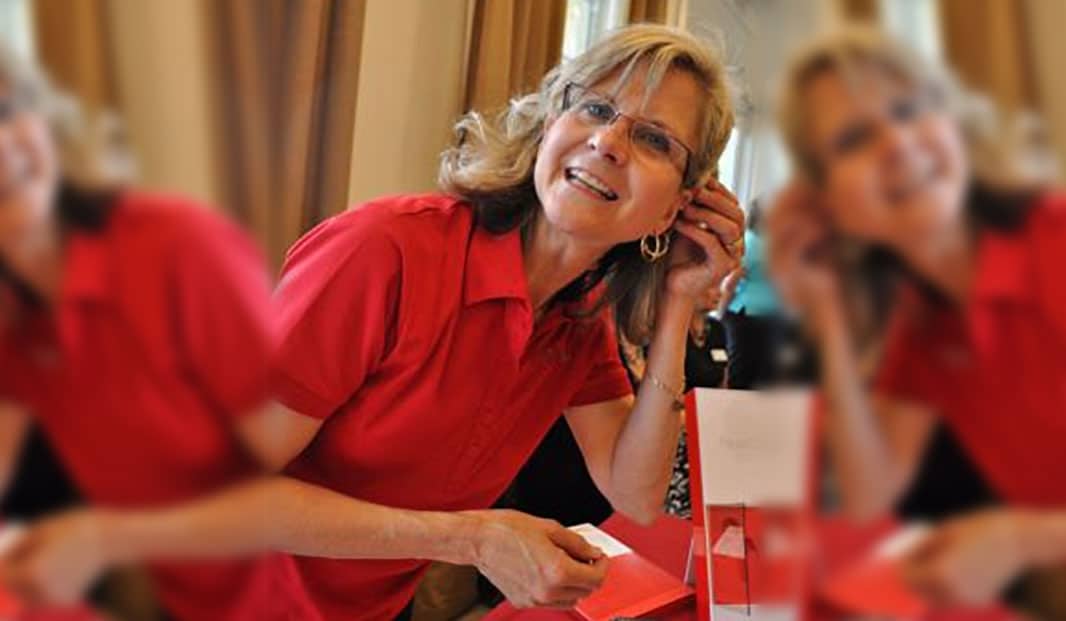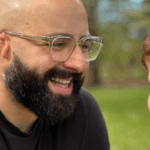MED-EL
Published Feb 11, 2015
Better than Hearing Aids: Virgi Mills’ Cochlear Implant Story

Last week we posted an article showing why your hearing aids might not work like you remember, and now we’ve got a first-hand story from someone whose hearing aids weren’t enough to treat her hearing loss. So what did she do then? Read on…
My hearing loss was inherited from my mother’s side of the family. Typically, it seemed that others in my family who had the hearing loss developed it in their 20s or later. In my case, however, my father believes that I had a high fever and that this somehow triggered the genetic component of the sensorineural hearing loss. I had a moderate hearing loss in my childhood, but the hearing loss was progressive in nature.
My parents were counseled that I could use a hearing aid while in elementary school, but they did not want me to be stigmatized in our community which was a very small town. However, as I was approaching my high school years, my older sister—who also had a hearing loss and had received hearing aids while in high school—advocated to my parents that I too should have hearing aids. They agreed and I started wearing one hearing aid in high school, then two in college until I reached my late thirties when it seemed that I just couldn’t function very well with my hearing aids anymore. It just didn’t matter that the hearing aids were the strongest or the most powerful available. Though I made sure that I always went to a very experienced audiologist, it seemed that my world was continuing to shrink.
I was finding that I was hesitant to meet friends in restaurants and sometimes I would make arrangements to meet with them on a one-to-one basis at a park or in our homes. It was simply too difficult to be what I call a “bobble head” when in noisy environments. My friends would be talking and laughing all around me and I would sit with, I’m sure, an unsuccessful smile on my face. Often, my friends would try to include me in the conversations, but that was becoming increasingly more difficult. Eventually, I just began to avoid restaurants. My world was shrinking.
I also found that my worsening hearing loss was impacting my relationship with my husband. When at church potlucks or large gatherings with friends and family, my husband would try to keep me in the conversations by repeating what people had said. But in doing so, he would miss out on what others had said. So he was trying to essentially carry on two conversations at once, which was very stressful and frustrating for the both of us. On the way home, I would ask him many questions trying to get caught up on the conversations. I was asking the impossible of him. The human brain simply cannot record every conversation and then recall it all. It seemed that I was, instead of being his wife, increasingly becoming his wife with a hearing loss. I did not like the way the hearing loss was beginning to define me.
While driving, my sons would try to ask me questions (and the questions always seemed to be something that would catch me off guard. There seems to be something about driving a car that makes children feel safe in asking their parents questions, for example about the birds and the bees.) When my sons wanted to talk to me, I would lean over so they could talk directly into my hearing aid (as I certainly couldn’t take my eyes off the road to lipread!) If I still not understand them, then I would say, “OK, let’s wait for a red light.” Then if I got a green light, we would all say, “Oh dang, it’s green!” I would say, “Please remember what your question is, I want to answer it!”
I tried to qualify for the cochlear implant for three years by having annual hearing tests. At one point, I was so frustrated about my “shrinking world” that I told my audiologist that I was going to go to a rock concert and sit right next to a speaker so that it could “blow out” my remaining hearing. Then, maybe, just maybe finally, I would be able to qualify for the CI! Surprisingly, she took me quite seriously and calmly asked me to not do this.
Finally, I qualified for the cochlear implant and was thrilled! Even though this meant that my choice of MED-EL meant traveling two hours one way for the surgery and all the follow up programmings. Well worth it!!!
Virgi Mills is a community outreach manager for MED-EL USA. Previously she was a teacher for the deaf and taught in public school auditory-oral programs.
MED-EL
Was this article helpful?
Thanks for your feedback.
Sign up for newsletter below for more.
Thanks for your feedback.
Please leave your message below.
Thanks for your message. We will reply as soon as possible.
Send us a message
Field is required
John Doe
Field is required
name@mail.com
Field is required
What do you think?
MED-EL


